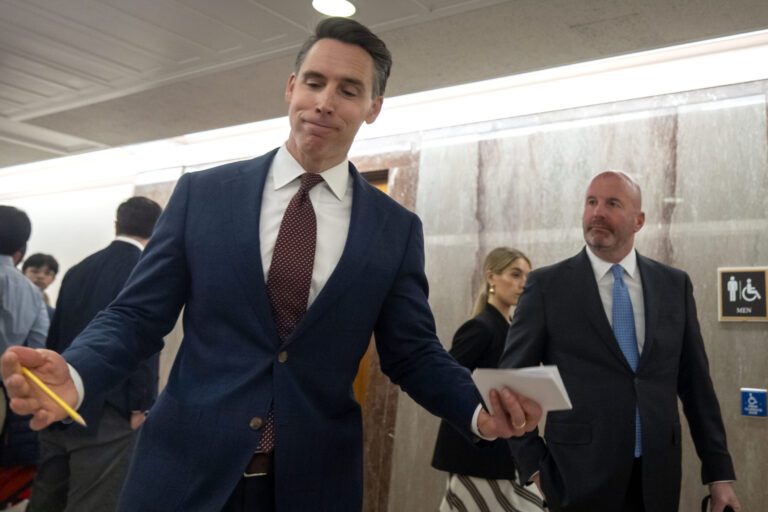Ongoing Struggles in Congress: The One Big Beautiful Bill Act
As Congress approaches President Trump’s July Fourth deadline for the One Big Beautiful Bill Act, Republican senators find themselves at an impasse. With many lawmakers proposing new ideas to balance spending cuts while safeguarding essential federal programs, consensus remains elusive.
Lack of Progress Among Republican Senators
During a private lunch meeting earlier this week, Republican senators made little headway on crucial aspects of the One Big Beautiful Bill. Key issues include:
- Cost-sharing arrangements for states regarding Medicaid
- Energy tax credits
- Reductions to nutrition assistance programs
Several senators, such as Josh Hawley, Lisa Murkowski, Susan Collins, Jerry Moran, and Thom Tillis, are voicing concerns that current Medicaid reforms may financially burden their states and lead to the closure of rural hospitals.
Proposed Solutions to Healthcare Funding
Amid these concerns, discussions have emerged about establishing a trust fund dedicated to rural hospitals to ensure their continued operation. However, no agreement has been reached yet. Senate leadership recently suggested a $15 billion fund spread over ten years for these healthcare facilities, but many senators, including Hawley, argue this amount is insufficient.
"In the short term, that figure may work, but it’s inadequate for the long haul," Hawley stated to reporters. He emphasized the need for a specific solution to the proposed funding framework.
Diverging Views on Rural Hospital Funding
Discussion on rural healthcare funding has sparked varying perspectives among senators:
-
Rick Scott, a former healthcare executive, advocates for a $6 billion rural hospital fund, stating his compromise figure is $10 billion. He is also positioned as a healthcare reform advocate, engaging with the White House to push for more aggressive cuts to Medicaid.
“I want to get this bill done and I want fiscal sanity,” remarked Scott. “I’m tired of Medicaid going to our able-bodied adults.”
- Susan Collins goes a step further, proposing a more substantial $100 billion fund catering to states reliant on small healthcare providers. She expressed her concern over the adverse effects of Medicaid cuts on healthcare facilities in her state of Maine.
Innovative Funding Proposals
Aside from healthcare funding, Collins has mentioned the possibility of a tax increase for Americans earning over $100 million annually to help finance these provisions.
Senator Lee’s Critique
Mike Lee has voiced his frustration with the current direction of the bill. He conveyed his belief that the Senate’s version of the bill is less favorable than what the House originally approved.
“This bill should be getting better in the Senate, not worse,” Lee stated on social media.
His comments underscore a broader sentiment among some conservatives who feel that the Senate’s amendments dilute the fiscal responsibility of the legislation.
Freedom Caucus Concerns
Congressman Chip Roy, a member of the House Freedom Caucus, has echoed Lee’s dissatisfaction. He indicated that the Senate amendments appear to soften the timeline for phasing out some Inflation Reduction Act green credits compared to the stricter conditions in the House version.
Roy articulated his concerns via social media:
“We are not here to increase deficits or fund unnecessary subsidies,” he remarked, expressing discontent with the ongoing legislative changes.
Conclusion
The path forward for the One Big Beautiful Bill Act remains uncertain as Republicans grapple with differing opinions on healthcare funding and budgetary priorities. With the July Fourth deadline looming, the urgency for consensus is more pressing than ever, making it crucial for all parties to negotiate effectively for the bill’s future.
For the latest updates on Medicaid reforms and healthcare policies, stay connected with reliable news sources.


